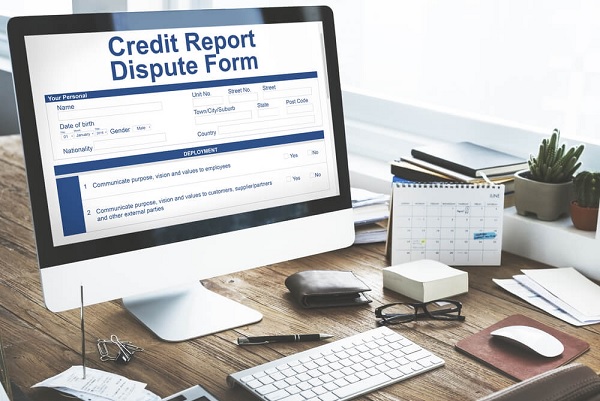
Credit reports are a huge part of our financial lives. They help lenders decide whether to give you the loan you want, and they also let potential employers and landlords know what kinds of loans you’re taking out or how much debt you have.
If you’re trying to get a loan from a bank or credit union, or if your landlord is considering renting to someone, your credit report can make or break the deal. But what about when the other person, who made the loan or has the power over denying your lease application, doesn’t have a good reason for why their information is in your report? What if there is misinformation in your credit report but it’s not something that’s going to affect current and future transactions?
Here are some ways to dispute inaccurate information in your credit report to get your credit repaired.
Understanding your credit report
First, understanding your credit report is important. The best way to do this is to get a copy of it by contacting the three major credit bureaus: Equifax, Experian, and TransUnion. There are also free third-party sites that help you get a better understanding of your reports.
Second, what is inaccurate information? For example, in one report there could be high balances owed on loans from other people or businesses that have nothing to do with you — but the lender still has these records in their system. This may cause the credit rating agencies to come up with a negative view of you because of those extra charges on your credit report. You may not even know these loans exist!
Third, if there’s an issue with your current or future transactions that has an effect on the accuracy of your credit report, then you can dispute that inaccuracy with one of the three major credit bureaus.
How to dispute a credit report
If the information in your credit report is inaccurate or incomplete, you can dispute it. There are two ways to do this:
1) Phone line: You can find a phone number for each bureau on its website or on your annual credit report sent to you by mail.
2) Online dispute form: The Federal Trade Commission has created an online form for you to use if you want to dispute an error in your report.
Alternatively, if you do not have time to handle credit repair on your own, you can hire an independent service. These services are not legally allowed to require upfront payment, but they will take a fee after your credit is repaired and the disputes on your credit report are resolved.
What if my credit report has misinformation?
If your credit report has misinformation that’s not going to affect current and future transactions, you can dispute the inaccurate information. You’ll need to gather documentation proving why the information is wrong since you are dealing with a third party. If it’s a new credit card or loan, get the paperwork with the signed contract stating which parties own the debt. If it’s incorrect information on an existing account, send copies of receipts and identification proving how long you’ve had that account along with a letter explaining what happened.
Another option is to request a copy of your credit score from each of the three major credit bureaus: Equifax, Experian, and TransUnion. This will show whether something has been reported incorrectly in your file or if there is something missing from your file that should be there. These credit bureaus are required to give you a free copy of your credit report every 12 months.
What are the consequences of not disputing information?
If you don’t dispute the information in your credit report, it can stay there for years. If there is inaccurate information on your credit report, it can remain there for up to 10 years. You are allowed to dispute information as often as you would like. This can include things like a late payment that was never made or an account that is not yours.
Conclusion
The most important thing to remember when dealing with your credit report is to be persistent. Whether you have just found out that the information on your credit report is inaccurate or you’ve been denied a loan because of something you don’t recognize, it’s important to know your rights. Make sure you are informed about the process and know what you can do to protect yourself and your credit.





